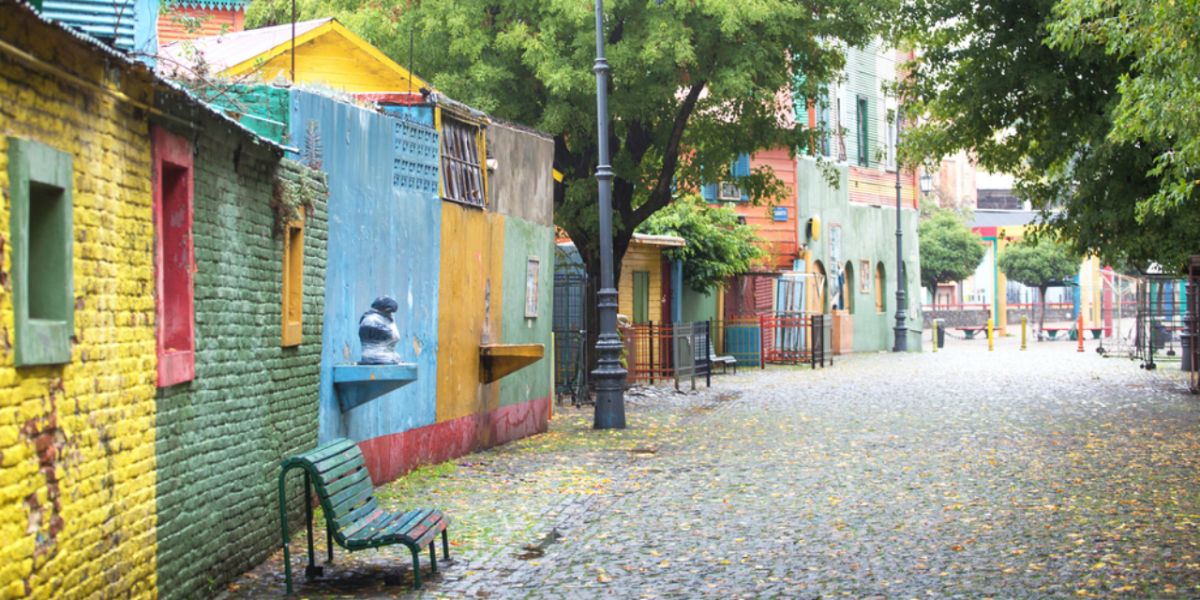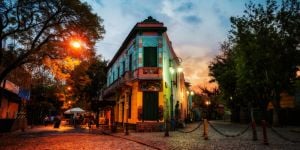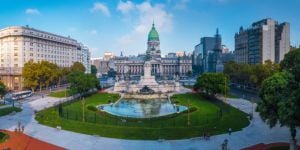
Here are some things to consider when picking a neighborhood in the city. First, know Buenos Aires barrios. But don't get bogged down in the cachet of certain areas. Figure out what matters most to you: location, space, or price. Take your public transit options into account.
With 48 barrios, Buenos Aires provides an eclectic mix of youth-oriented barrios with those preferred by older expats. The following are some of the most popular barrios or neighbourhoods.
Caballito
Bordering Villa Crespo on the north and Almagro on the east, Caballito managed to keep a low profile. Located precisely in the geographic centre of the city, Caballito means “little horse.” Residents can enjoy large plaza, a lake and a mile-long jogging path around the shore.
La Boca
Home to the La Bombonera stadium which is Boca Juniors' home arena, La Boca was the original settlement.
A working-class neighbourhood, La Boca has built a well-deserved reputation for being witness to greater crime rates than areas closer to the city centre. The tourist areas are safe, but taking a wrong turn can put you at risk.
The restaurants aren't as crowded in La Boca as other parts of the city, so expect good food, excellent service and a low price.
San Telmo
Cobblestone streets, faded grandeur and a large street market blend to put San Telmo on expat maps. Most expats find San Telmo romantic and the most “Porteno” of Buenos Aires.
San Telmo isn't as dangerous as in the past because of gentrification, but be careful at night.
San Telmo has experienced a decline from past glories, but the city is making improvements and the barrio is considered a neighbourhood on the rise.
Every Sunday, shoppers at the street market can linger around as tango dancers strut and dance around the street.
Barracas
Barracas with “the” place to be in the 1800s.
Located in the southeast corner of Buenos Aires, homes have colourful facades, and the area is filled with lower-middle-income residents.
Puerto Madero
Puerto Madero is more unlike Buenos Aires than any place in the city. A TGI Fridays is a short walk from Hooters, and the sidewalks don't have potholes.
It is as though a giant hand-scooped up Manhattan and planted it in Latin America.
Puerto Madero's transformation began in the 1990s when foreign investment led to redevelopment. The barrio was recycled from riverfront warehouses to elegant homes, offices, lots, and hotels.
With an international flair, Puerto Madero is the location of choice for young professionals and retirees with deep pockets who want to live on a long stretch of Rio de la Plata.
Palermo Soho
Bordered by several primary Avenidas, Palermo Soho is filled with restaurants and boutiques. Palermo can be too edgy and trendy for some, but the creative and young call it perfect.
Throughout Palermo Soho, the street culture makes the barrio popular with young, upper-middle-class Argentines
Recoleta
The most affluent barrio in the city, Recoleta is also the home of the impressive Recoleta Cemetery — Eva “Evita” Peron's resting place.
Many expats feel Recoleta is like living on 5th Avenue in Manhattan due to the lavish homes, plush hotels and shaded cobblestone streets and parks.
Recoleta has established a name as being “the hip place to see and be seen” in the city.
Belgrano
Located in the southeastern section of Buenos Aires, Belgrano was named for Manuel Belgrano, the designer of Argentina's national flag.
In the late 1800s, the neighbourhood found itself as the nation's capital because of a government dispute.
Most of the barrio's densest housing is located along Cabildo. High-rise apartments cluster around leafy streets surrounding the Universidad de Belgrano.
Belgrano is favoured by wealthy Argentines and expats alike.
We do our best to provide accurate and up to date information. However, if you have noticed any inaccuracies in this article, please let us know in the comments section below.








